PPM is proud to have many veterans as part of our team. They add to the strength and diversity of our firm, and the experience, strength, and expertise they gained from their service benefit our clients every day. Here are just a few of their stories.
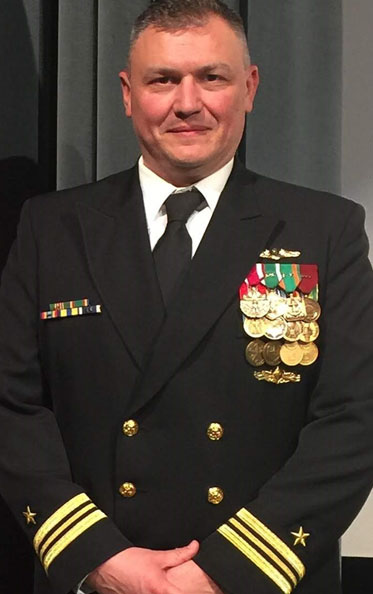
Russ Kuntz, Director, Operations
I started my career in the Navy as a Nuclear trained Electrician on submarines and finished as a Nuclear Submarine Lieutenant Commander. I served on five different Submarines, and one Aircraft Carrier, along with multiple shore duties in Hawaii and Washington.
It was a privilege to be able to serve and do what I loved for 26 years. It was not easy to leave my family behind to go on deployment, but I always felt that it was a privilege that I had to be able to protect our country and do a job that I loved with a group of men and women that would have your back and work together to ensure we all succeeded in our missions. One of the proudest days of my time in the Navy was when I gave my son my first set of dolphins when he qualified as a submarine.
When entering the civilian workforce, it was challenging yet exciting at the same time; the challenging part was translating what I had done in my Navy career into something that would grab the attention of the civilian workforce. I was fortunate to have some excellent mentors help me with this process which allowed me to get a good job coming out of the Navy.
For me, it is about understanding the amount of responsibility required of everybody – including the very young and relatively uneducated. As teens and young adults, they are in positions where they are responsible for expensive pieces of equipment, carrying out complex operations, responding properly to emergencies, and more – if they make a mistake, people can be hurt or can die, and they can ruin millions or even billions of dollars worth of equipment. And they carry this responsibility under conditions that most people will never experience – very high temperatures, immersed in smoke while fighting fires, being shot at, in utter darkness, and more. So just because they don’t have a specific experience on their resume doesn’t mean they will not be a great fit for your company.

Leah Airt, Senior Program Manager, Operations
I served for 8 years in the Psychological Operations Branch of Special Operations for the Army. I served in the Horn of Africa and supported Operations in Syria.
I entered the civilian workforce without a clear plan of where I should land. Transitioning into the civilian workforce has been an awkward 8 years of calibrating my voice, healing from pieces of my military experience, and finding where I belong in the workforce. Awkward is an absolute understatement.
I had to redefine my passions and not be afraid to try different paths. Eight years later, I now hold an eclectic resume in calibrating my voice outside the military and landed on a team where I get to write and build every single day.
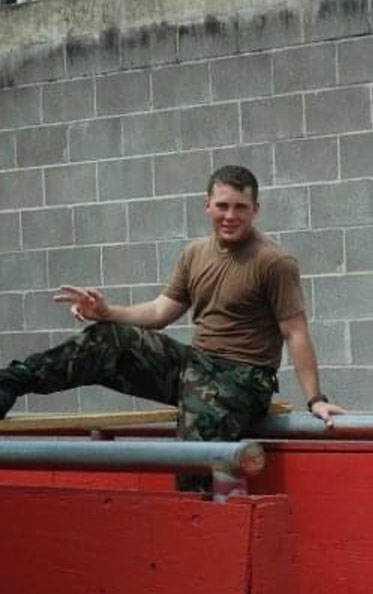
Steven Archibald, Senior Project Manager
I was a Builder with the U.S. Navy Seabees for five years from 2005 to 2010, which meant I worked on carpentry, concrete, masonry, paint, and a lot of other stuff. My homeport Naval Construction Battalion Center (NCBC) Gulfport, and in my 5 years, I deployed to Korea, Iraq, and Guam.
It meant a lot for me to serve as I did so with only a Green Card at first because my family had moved to the U.S. from England when I was 10 years old, and we had not yet been able to apply for citizenship when I enlisted. Serving gave me a way to feel I had contributed to and earned my citizenship through an expedited process since I was in the military, and I received and was naturalized two days before deploying to Iraq.
I was lucky enough to transfer into the workforce by completing my Bachelor’s degree through the Veterans Post 911 GI Bill. Having that 2-year transition definitely helped me to refine and further develop skills I had learned in the Navy and also learn new ones. Overall, the biggest adjustment was and is maintaining work/life balance. In the Navy, it was about the mission all the time, Now, I really make sure to keep a long-term view of work-life balance to protect against burnout.
I would just say that in my experience, my service felt so rewarding and fulfilling that I often find it really strange to be thanked for my service. Maybe another thing would be how diverse the military is and how it blends everyone together under a common mission; I met so many people from different walks of life and from different parts of the world that it was far more diverse than I could have ever imagined.
Shawn Murray, Senior Project Manager
I was commissioned in the Army as a Second Lieutenant in the Infantry for more than 23 years and retired as a Lieutenant Colonel. Over the course of my career, I was stationed at Fort Benning, GA; Camp Hovey, Republic of Korea; Fort Jackson, SC; Fort Knox, KY; Fort Campbell, KY; Jasper, IN; Fort Hood, TX; Picatinny Arsenal, NJ; and Patuxent River Naval Air Station, MD. I also went to Iraq twice and Afghanistan once.
For as long as I can remember, it was always my desire to join the Army and serve our country. For me, it was a great adventure and the opportunity to give back to our great nation, as so many other men and women have done before me.
I found making the transition from the Army to the civilian workforce quite easy. Halfway through my career in the Army, I accepted an opportunity to switch from the Infantry to the Army Acquisition Corps, where I got the chance to work with great men and women who were Department of the Army and Department of the Navy Civilians. They spent their time teaching me about the business side of the Army and made the transition for me very easy.
I think the one aspect of serving in the Army that most civilians don’t understand is that serving in the military is not a 9-to-5 job. Most people in the Army start their work day before 6 am and work 12 hours or more. The days can be exhausting but rewarding.
There are so many great experiences it would be hard to boil them down to just a few. Conducting night parachute jumps and watching static electricity dancing on the rotor blades of a helicopter as you fly over the desert in the middle of the night are just a couple of my favorite memories. Most of my best memories are of the men and women that I worked with and the places that Army sent us. I have thousands of wonderful memories of the patriots from all walks of life that I worked for and with over 23 years of military service.
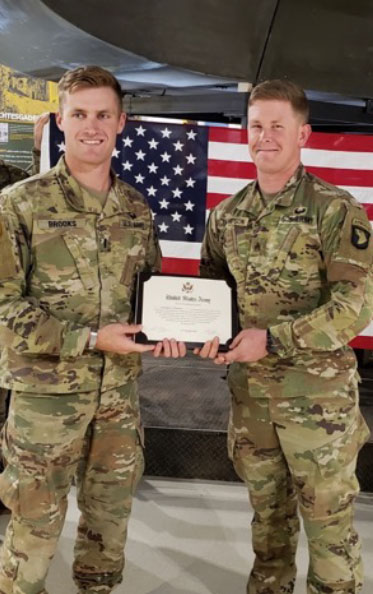
Matt Brooks, Project Manager Lead
I served in the United States Army as an Infantry Captain, 101st Airborne Division (Air Assault), Fort Campbell, KY, for five years.
My service exposed me to the rigors of military discipline, the traditions, and the diversity of our servicemembers. My alma mater, the United States Military Academy at West Point (USMA), emphasizes this idea through the alumni association “The Long Gray Line.” What we experienced during our time at the academy and while serving in the Regular Army were new threads woven into a rich tapestry that included the experiences of previous graduates and officers like Ulysses Grant, Henry O. Flipper, Coach K, Buzz Aldrin, as well as my high school mentor, Robert Handcox, USMA ‘63, former Army Ranger, Judge Advocate General (JAG), and head of the USMA Law Department in 1988.
The U.S. Military has several programs that servicemembers can take advantage of to get a head start on the transition to civilian life. I found an opportunity to intern at PPM in their Transition Relocation Management service line, which turned into the role I am in today. The hardest part of transitioning is finding a new support system. In the Army, I had friends and colleagues who I could lean on. This isn’t always the same in the civilian workforce, but I found the same support in local volunteer organizations. I have become involved in veteran community organizations, such as 7Element Athletics in Nashville, as well as non-veteran organizations like First Tee of Tennessee. As a result, I fulfilled my desire to have camaraderie and purpose in my personal life.
What I feel most civilians don’t understand about the military is that experiences vary from servicemember to servicemember. Some strongly desire to serve out of duty, while others serve because of the stability and benefits. No story is the same, and when the opportunity presents itself, I encourage you to listen to the stories of service members and not be afraid to ask pointed questions, challenge them, and accept their perspectives and, in doing so, grow your appreciation and knowledge of what it means to serve and to gain a unique perspective on the military experiences and policies of your nation.

Joe Dalbec, Assistant Project Manager
I served as an Infantry Machine Gunner in the United States Marine Corps for 6 years from 2010 to 2016 in Afghanistan, Yemen, Kuwait, Jordan, Japan, and the Philippines.
My time in the Marine Corps meant everything to me. That period of my life was instrumental in shaping who I am today. The perspective on daily life I gained during my deployments has made me appreciate how good we have things here in the United States. Most of all, I am grateful for the opportunity I had to serve my country; it is one of the things I am most proud of in my life.
Transitioning into the workforce was one of the hardest things I have ever done and something I am still working on. The civilian workforce is very different from my life as an infantry machine gunner. After leaving the Marines, I struggled to find a job that gave me a sense of mission and purpose like my current role does.
Despite all the troubles we have here in the United States, we are blessed to live in the greatest country in the history of the world. Even though our system is not perfect, and there are many things we need to work on, the comforts and opportunities we have here are unmatched. We can enjoy all that this country has to offer because, throughout our nation’s history, young men and women have volunteered to protect what we hold dear at great risk to themselves. I wish that more civilians understood just how great this country is and that the hopes and dreams of all Americans have been protected through the sacrifices of our military service members and their families.
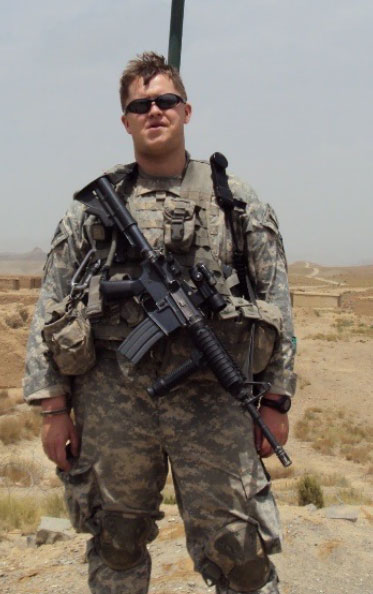
Matt Kelly, Project Manager
I was a Forward Observer, aka Artillery Spotter, for the Army for 4 years and 11 months. I served in the 1-187 Infantry Regiment, 3rd Brigade Rakkasan, 101st Airborne Division out of Fort Campbell, Kentucky. I also served 15 months in Iraq as part of the “Surge” in 2007-2008 and 12 months in Afghanistan.
It wasn’t easy to transition into the workforce, that’s for sure. It took a lot of perseverance and the need to adapt and overcome the obstacles in my way.
There is so much I wish civilians understood about military service. I’ll just leave it at that. You can say, “thank you for your service,” but truth be told, we didn’t do it for “you.” People come from all over the world, from all walks of life, to volunteer in this country’s military. And we all do it for our own reasons, and at the end of the day, we are just people trying to get by like everyone else.
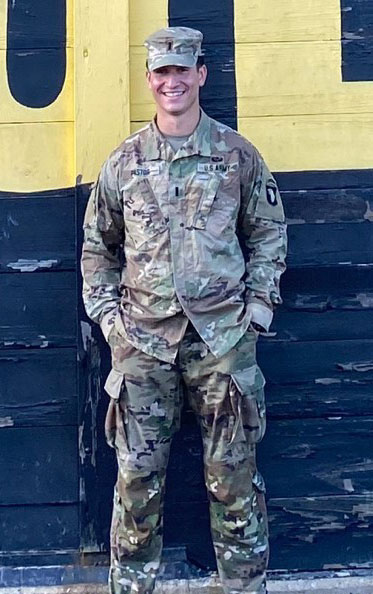
Justus Pastor, Project Manager II
I was a 1st Lieutenant as an Infantry Officer in the Army 101st Airborne Division for four and a half years.
I have wanted to serve in the Army ever since I could remember – I had multiple family members leave their home country, come to the U.S., serve in the Army in WW2, and pass away in combat – hearing their story when I was younger helped me make up my mind.
Transitioning into the workforce is something that every veteran tells you about, but even with their advice, it’s a very personal journey. I found it very helpful to have a strong group of people around me at such a pivotal time in my life- my friends, other people I served with, family, girlfriend, and the dog helped big time!
I think civilians nowadays are as educated and as supportive as ever when it comes to the military and what service means, but if there was something I could share with them – it’s that no matter how many years you’ve served, no matter what you did, and no matter how many places you’ve gone or haven’t gone within the military the people who come back are so grateful for the support they’re given in any way shape or form.. because above all, what’s sacrificed in service is the time and choice to do what you want when you want to do it and you can’t get any of that time back.
Eric Toombs, Workplace Manager I
I was an AO (Aviation Ordinanceman) in the US Navy for 4 years, stationed on the CVN73 USS George Washington. My command at the time was stationed at Naval Station Norfolk Base (NOB).
It was a life-changing experience for me. I appreciate learning new things, and being an Airman took me places I would have never imagined it would. It taught me that every experience has value, and it is our job as people is to not take anything for granted.
It was a difficult transition into the workforce, but most things in life are. When you have been used to a culture unlike the one you are now in, things about it can become less understandable to you. However, at least in my mind, the service can instill the ability to adapt to the unexpected. It teaches you that even in the worst situations, you can be your best. Some of the habits you pick up in the service favor you in the civilian world.: Tidiness, Discipline, Respect, Resilience, Courage, The utility of hard work(pride), You are more capable than you think.
Those of us that served are not all soldiers. We are not objects made real by the branch of the military or government we serve, but people like you. We have interests of our own, families of our own, hobbies, etc.
We joined for our own reasons, but we will take/took pride in serving our country and /or making sacrifices to protect our loved ones.

Joanna Walker, Project Manager I
I began my career in the U.S. Army Reserves, I was an Intelligence Analyst serving with the 14th Psychological Operations Battalion in Mountain View, CA. I later joined the U.S. Army on Active duty and became a Radio and Satellite Retransmission Operator serving in Fort Hood, TX, with the 36th Medical Battalion and the 62nd Engineer Battalion, and finally, I went to Camp Casey, Korea, and served with the 122nd Signal Battalion. I served for five years with my reserve and active time combined.
Serving in the military taught me so many of the skills that have led to my successes in life, such as completing college and having a well-established work ethic that drives me to learn and grow. On the other hand, my service has also taught me to learn and grow from my failures. My service also created a comradery with my fellow veterans that are lifelong and a deep-rooted culmination of shared experiences that ties us to one another like family. I am proud of my service and proud to have served with all of the men and women that took an oath. I am grateful for the sacrifices made by so many of our brothers and sisters.
I was very fortunate when I decided to transition back into the workforce as a friend sent me an application for a program that her company sponsored that helped veterans break into the tech industry. I went through the application process and was accepted and went to a fourteen-week Introduction to IT program, which included a paid internship. I was very fortunate as I was able to secure full-time employment directly from the internship.
Veterans can bring unique perspectives to civilian work environments and add to diversity in the workplace.
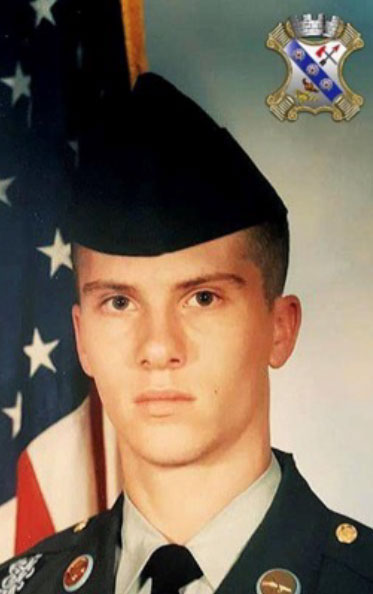
Eric Stensrud, Associate Director
I served in the Army for four years as an Infantryman, Enlisted E-4, Mannheim, Germany, and Fort Lewis, WA.
I am proud to have served my country and to know what it means to push myself mentally and physically.
Transitioning into the workforce was challenging because I did not have help or guidance. I didn’t know what skills I learned while serving, but I quickly realized I was a better leader and followed through with tasks better than my civilian counterparts.
I think military veterans have learned to balance mental and physical stress, making them valuable assets to any organization.
